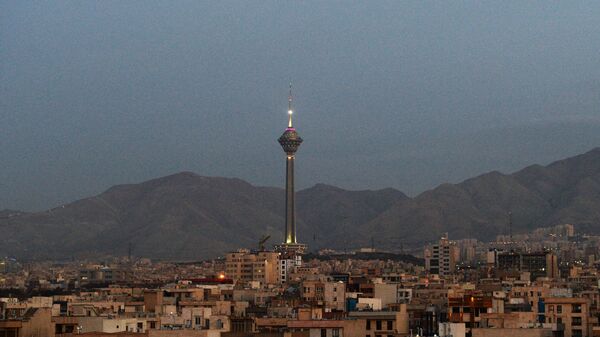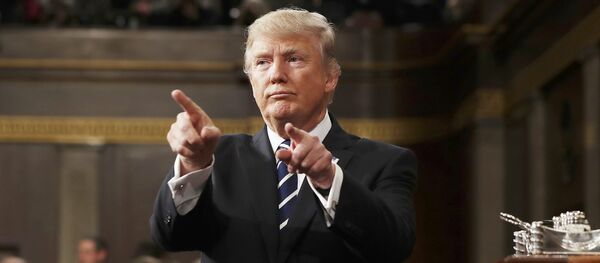US President Donald Trump has shown that he doesn't abide by international agreements and obligations, the speaker of the Iranian parliament, Ali Larijani, said on Sunday, commenting on Washington's decision not to certify the Iran nuclear deal, paving way for a possible exit from the agreement in the future.
"It seems that Mr. Trump not only does not adhere to international agreements, but does not feel respect for the UN and demonstrates to all countries that the US government will not adhere to any obligations," Larijani said.
He said that the International Atomic Energy Agency (IAEA) has confirmed Iran's compliance with the nuclear agreement for 8 times.
"Iran openly announced that the nuclear weapons have no place in our military doctrine," the politician added.
According to Larijani, Trump wants to "destroy" the nuclear agreement, because of his conflict with the legacy of former US President Barack Obama, during whose tenure the deal was reached.
"It is seems that Mr. Trump because of his hostility with Mr. Obama would like to destroy the agreement because of internal issues in his own country," the official said.
Larijani's comment comes after Trump decided not to certify the Iran nuclear deal on Friday as part of the new US strategy, prompting Tehran's statements, saying that the country would respond if its interests under the agreement are harmed. The US leader also ordered the Department of the Treasury to impose new sanctions against the Iran Revolutionary Guard Corps (IRGC) for allegedly providing assistance to terrorist groups, a claim denied by the elite Iranian forces and official Tehran.
After Trump's announcement, many members of the P5+1 group that brokered the historic deal in 2015 yet again stated that they believe Iran is in compliance with the nuclear deal. Commenting on Washington's move, Moscow said that Russia remains committed to the deal, is interested in preserving it and calls on all other participants of the agreement to do the same.
In July 2015, Iran signed the JCPOA with the P5+1 group of nations, a group comprised of the five permenant members of the UN Security Council — China, France, Russia, the United Kingdom, the United States — plus Germany. The nuclear deal came into force in January 2016, and provides for the gradual lifting of economic and diplomatic sanctions imposed on Tehran by Western countries in exchange for closing Iran's nuclear program.



